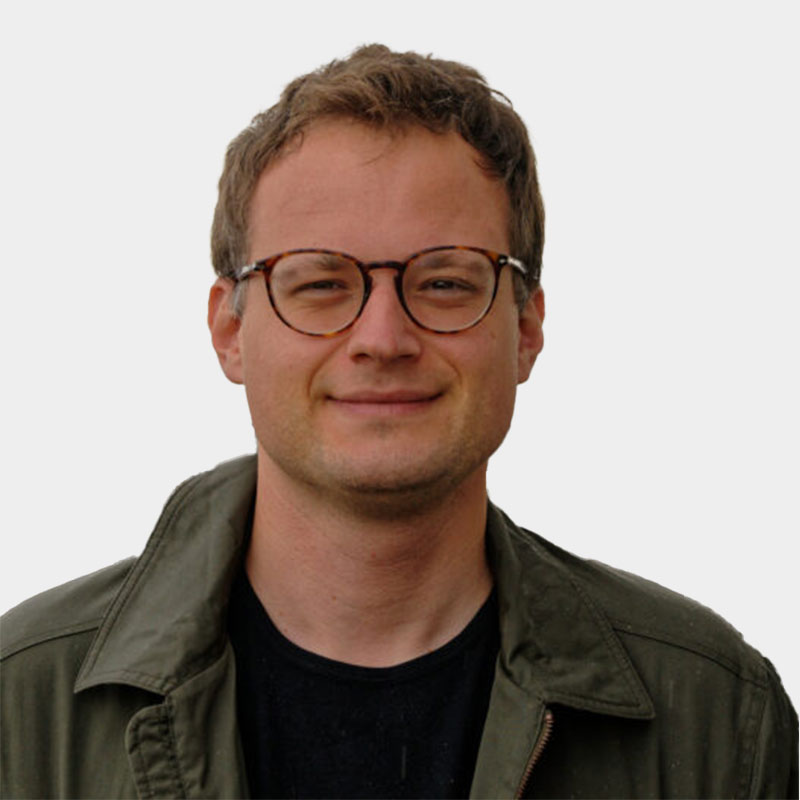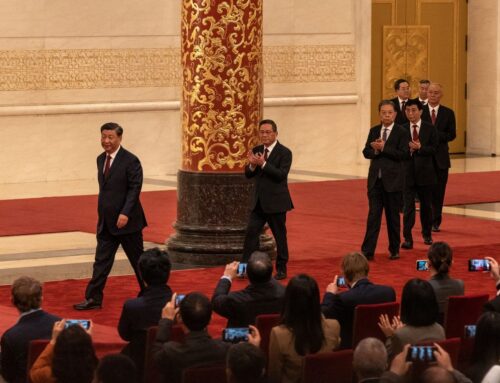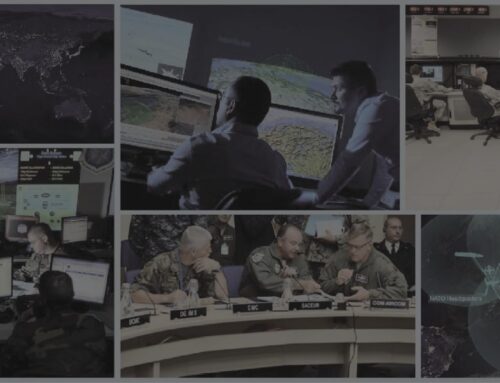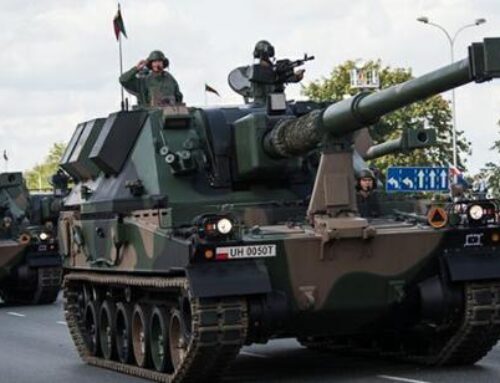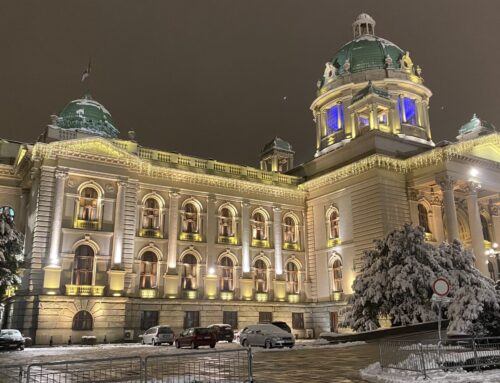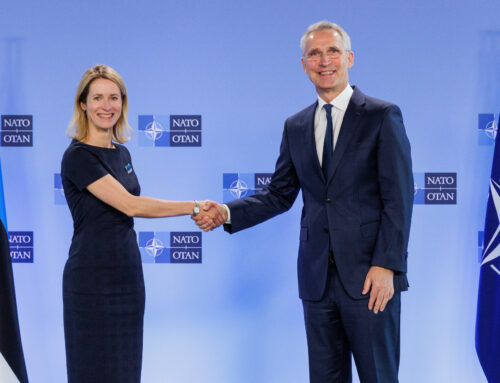Winter Palace
Autor foto: Alex 'Florstein' Fedorov
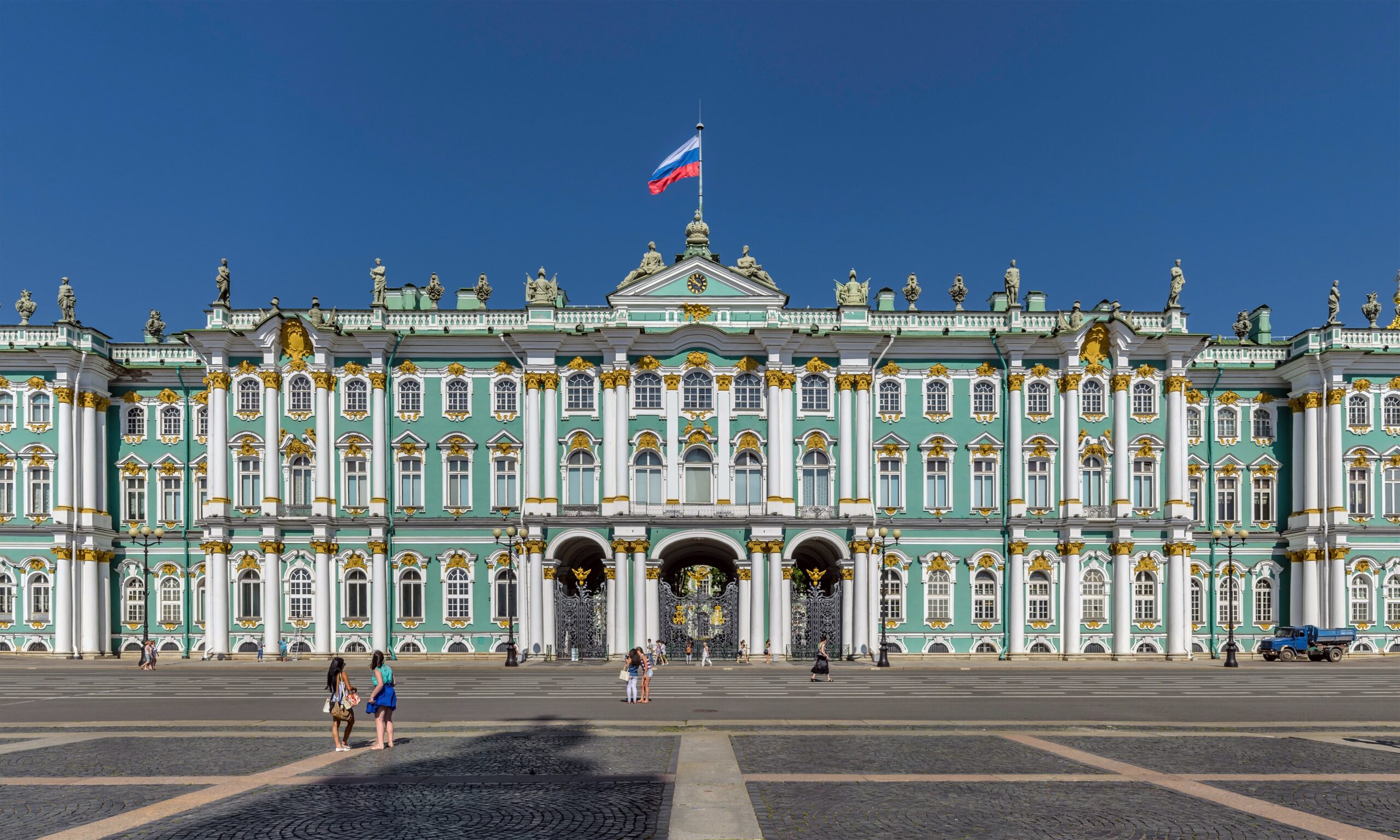
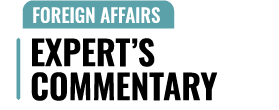

Winter Palace
Autor foto: Alex 'Florstein' Fedorov
The perils of West-imagined Russia
Autor: Miłosz J. Cordes
Opublikowano: 18 września, 2023
The comments on the great Russian empire, made by Pope Francis at the end of August, not only were harmful because of the ongoing Russo-Ukrainian war but also because they point to a deeper phenomenon of prioritising Russia and its presence in European political, economic, cultural, and spiritual life. There is an established record of Western elites treating Russia as the sole meaningful entity in Eastern Europe and one of a few in Central Europe across the centuries. This narrative proves to be as lively as it is dangerous for it negatively impacts the process of embedding the region’s nations in the Western democratic institutions despite their determination to do so.
The phantom of great Russia
In a video meeting with the Russian Catholic Youth in late August, Francis spontaneously added the following words to his speed: „Don’t forget (your) heredity. You are heirs of the great Russia – the great Russia of the saints, of kings, the great Russia of Peter the Great, of Catherine II, the great Russian empire, cultured, so much culture, so much humanity. You are the heirs of the great mother Russia. Go forward.”.[i] These sentences, said a year and a half into Russia’s full-scale invasion of Ukraine, met with harsh criticism in Kyiv, as well as in countries actively supporting Ukraine in its war of independence.[ii]
Although Francis admitted his words being faulty a few days later, they still resonate in the information sphere. The pope has not been the only prominent representative of the Western civilisational circle expressing some form of admiration for imperial Russia and its heroes and heroines, such as Catherine the Second who ruled in 1762-1796. These were the times of groundbreaking changes in Europe and North America which long-term impact continues to this very day.
Such statements made by high-ranking officials (let us not forget that Francis is also a head of state), politicians, and intellectuals in many European states have not been rare since the end of the Cold War. Every now and then, they would speak of Russia as a responsible international player with justified interests in Central and Eastern Europe. In fact, those ‘interests’ date back to the times of Catherine the Second, whom pope Francis addressed with so much awe, and have been part of the European discourse on Russia ever since – with different intensity and focus.
Fear-based empire
Francis’ approach carries a heavy load of misconceptions about how Russia was created and how it expanded territorially. In the eighteenth century, Russia gained a broad access to the Baltic Sea and became a major European power at the expense of Sweden, Poland-Lithuania, and Turkey. From an obscure tsardom on the outskirts of the continent, it turned into the dominating force in European international relations.
As the rulers in St. Petersburg took control of areas with different ethnicities, cultures, and religions, they needed to choose the model of state and execution of power. Catherine the Second, mentioned by pope Francis, followed the path set already by Ivan Grozny, based on distrust and oppression. While Western European thinkers were creating the rudiments of Enlightenment, which paved the way for the U.S. independence and the French Revolution, Russia was emerging based on lack of respect for individuals. By making appearances and financing many influential personalities of the time, such as Voltaire, Catherine made sure to raise positive interest of Russia in Europe.
The late eighteenth century also brought about the new narrative of Russia’s history. It sought to underline its uniqueness and its exclusive right for political representation of all communities living in newly conquered territories in Eastern Europe. The medieval term Rus was extrapolated onto and substituted by Russia. The lands of today’s central Ukraine, including Kyiv, became Malorossiya – meaning Small Russia, those in the south and southeast – Novorossiya – New Russia, and the territory of Belarus – White Russia. Russian empresses and emperors claimed the right to the legacy of lands which for centuries had had intense relations with their Western neighbours, and – contrary to Moscow – enjoyed a high degree of cultural and religious freedoms as independent states and, later on, as a part of Poland-Lithuania.
It was precisely that time when the rudiments of the modern Russian anti-Western discourse were created. Russia, with its distinctive culture and Orthodox legacy, was meant to be surrounded by hostile forces. This distrust culminated in the aftermath of the Crimean War when a coalition of European powers allied with Turkey to stop Russian expansion plans, reaching as far as Palestine. Russia’s defeat fuelled anti-Western sentiment and a number of conspiracy theories involving Western elites, Poles, Jews, and secret societies.[iii] Paranoia and the besieged fortress syndrome became dominating elements of the Russian political life along with messianic visions of the Russian samoderzhaviye – an autocratic, semi-despotic monarchy. They provided safe but not free haven in an increasingly complex world.
This approach obviously did not prevent Westerners from looking at Russia with admiration. For conservatists and royalists, Russia was the main force that stopped Napoleon and acted as a stabilising actor in post-Vienna Europe. Progressive intellectuals sought inspiration in the golden and silver eras of Russian literature, often ignoring its chauvinist and xenophobic angle. Revolutionaries admired the vibrancy of Russian anarchist and socialist movements.
What connected these approaches was that in all of them Russia acted as the only meaningful political entity east of the Vistula River. Even in the interwar period when many feared that the Bolshevik revolution could turn out contagious the newly established nation-states between Germany and Soviet Russia were often perceived as Saisonstaaten – temporary states. The post-1945 developments only cemented this view as the Soviet domination yet again, just like in the tsarist time, deprived the region of subjectivity.
The evergreen Russian interests
Russlandversteher – those who sympathise with Russia and its interests – have been an even more visible phenomenon at the European political scene after the collapse of the Soviet bloc. Hopes for Russia’s democratisation, initially associated with Boris Yeltsin, gave momentum to re-establishment of all kinds of ties: political, business, and cultural ones. Russia was there again – this time allegedly open, eager to cooperate and full of possibilities. It would have been such a waste not to grasp this opportunity.
At the same time, most of the newly established, fully independent nation-states in Central and Eastern Europe quickly voiced their Euro Atlantic aspirations. Yet achieving this goal required more than just fulfilling the Copenhagen Criteria or any other provisions written in international documents. It took a lot of time and effort to convince the Western capitals that Russia has no justified claims over its former satellites; that the XIX-century idea of spheres of interests no longer applies; and that expanding the European Union and NATO is the best way to prepare the West for future challenges related to global power shifts.
Over the first 15 years, this only succeeded for a few Central European nations and the Baltic states. Others were lagging behind not only in terms of quality of democracy, but also in their subjective distance. It was expressed by such phrases as ‘the Ukraine’, ‘White Russia’, ‘Kiev’ (Russian spelling instead of Ukrainian one) or they were simply referred to as Russia. The actual Russia was still mentally closer, especially when higher oil and gas prices in 2000s made it lucrative to deal with the Kremlin. In the first years of his presidency, Vladimir Putin was sending signals about Russia’s European roots and path. It was visible in 2005 when Russian president met with Jacques Chirac and Gerhard Schroeder outside of Kaliningrad to celebrate the 750th anniversary of founding the city. Putin’s Lithuanian and Polish counterparts, neighbours of the Russian semi-exclave, were not invited.
Schroeder is perhaps the best well-known example of this phenomenon. The former German chancellor, heavily criticised for his involvement in Nord Stream these days, could not be so effective without a broad consensus among German political and business elites that the country should pursue close ties with Russia to ensure the flow of energy resource for its industry. The following years showed that any real or imagined hopes for Wandel durch Handel crashed spectacularly against the opposing tendencies at the Kremlin.[iv] Even the war in Georgia and the 2014 events in Ukraine did not entirely stop Germany’s engagement with Russia.
Charming neo conservatism
Growing authoritarian tendencies surfaced when the Kremlin cracked down on the protests at the turn of 2012. Even then Russia’s soft power in Europe did not collapse, but merely shifted focus. With Vladimir Putin coming back to the presidential seat, a set of articles he published in the election campaign pushed Russia towards a redefined civilisational discourse. The narrative was bizarre. The country was meant to be unique thanks to its traditional moral values closely linked with Orthodoxy, tolerance for other religions, the dominating role of ethnic Russians as the state-founding nation, and the political continuity across centuries: from Rus and Russian Empire to Soviet Union and Russia.
The vision of great Russia, which pope Francis fell under the spell of, is in fact a mixture of half-truths and open lies. The two centres of political gravity of medieval Rus, Kyiv and Novgorod the Great, existed centuries before Moscow was created (1147). They thrived either as independent entities (Novgorod) or as a part of the Polish-Lithuanian Commonwealth. The medieval Ruthenian language bears more resemblance with contemporary Belarusian and Ukrainian than with Russian. The legal, cultural, spiritual traditions of Rus formed across centuries through mostly peaceful interaction with its neighbours, not by military conquest and political oppression that the rulers of Moscow and St. Petersburg favoured. The Soviet Union perfected the oppressive methods from the feudal period. Stalin alone is believed to be responsible for at least 20 million deaths.[v]
Nevertheless, this quasi-civilisational and strongly anti-Western viewpoint fell on fertile ground in many European countries. Economic crisis, fear of migrants and refugees, secularisation, alleged danger coming from Muslims, and radicalisation of political life fuelled radical movements across the continent. For many far-right activists, Russia offered an antidote to the West’s moral decay and the evolving definition of the nation-state tangled in a complex web of international dependencies. The Kremlin lured many, including those among the Roman Catholic hierarchy that dreamt of uniting the two dominations of Christianity – a fantasy present since the beginning of Reformation even though Catholics have played a univocally negative role in Russian conspiracy theories.[vi]
Under the disguise of such a positive agenda, the Kremlin-financed polittekhnologs – a term broader and more ominous than Western spin doctors – provided a useful tool for redirecting public attention from worsening living conditions to the neo imperial policy. The annexation of Crimea and Donbas caused the popularity ratings to skyrocket and prepared the ground for a full-scale invasion eight years later. The anti-Western, anti-establishment, and anti-neocolonial discourse also helped Moscow create an impression in many areas of the war that the Invasion of Ukraine had been provoked and justified. Although the day-by-day growing number of victims of this conflict is a tragic addition to the aforementioned continuity of the cruel Russian political culture, there are still many talking about the might of great Russia.
Conclusion
Fascination with Russian culture and history has too many times been confused with having an understanding for Russia’s imperialist policies, disguised as justified interests in the so-called zone of influence. It impeded on the pace of the Euro Atlantic integration of Central European nations. It did not prevent it mostly because of the region’s centuries-long, strong ties with Western culture, as well as judicial and political institutions.
In the case of Eastern Europe, the Kremlin’s long shadow has facilitated the emergence of an authoritarian regime in Belarus and has severely weakened, sometimes even paralysed, democratisation processes in Moldova and Ukraine. The same can be said about South Caucasus where Moscow’s divide et impera policy have contributed to the lack of progress in reforms and resolving region’s many protracted conflict.
Part of this phenomenon has been the strong conviction among parts of the Western political and business elites that Russia has the right to do as it pleases in its ‘canonical territory’. Today, a year and a half into the full-scale invasion of Ukraine, support for Kyiv should also entail efforts to change the way the history of Russia is perceived. Political and spiritual leaders, such as pope Francis, should demonstrate more far-sighted sensitivity and refrain from praising a phenomenon that has made the ongoing war possible.
Author: Miłosz J. Cordes, Resident Fellow at the Casimir Pulaski Foundation
Supported by a grant from the Open Society Initiative for Europe within the Open Society Foundations
[i] Pullella, Philip. 2023. “Pope Francis draws criticism for extolling Russian imperialist tsars”. https://www.reuters.com/world/europe/pope-francis-draws-criticism-extolling-russian-imperialist-tsars-2023-08-28/ (accessed 2023-09-11)
[ii] Reuters. 2023. “Lithuania summons Pope’s diplomat over remarks on Russian empire heritage”. https://www.reuters.com/world/europe/lithuania-summons-popes-diplomat-over-remarks-russian-empire-heritage-2023-08-30/ (accessed 2023-09-11)
[iii] Yablokov, Ilya. 2018. Fortress Russia. Conspiracy Theories in the Post-Soviet World. Cambridge – Medford: Polity Press.
[iv] Financial Times. 2022. “A watershed moment for Germany”. https://www.ft.com/content/ef26212e-2c3c-4403-a796-a5344ed40a0c (accessed 2023-09-11)
[v] Montefiore, Simon Sebag. 2005. Stalin: The Court of the Red Tsar. New York: Vintage Books.
[vi] Yablokov, Ilya. 2018. Fortress Russia. Conspiracy Theories in the Post-Soviet World. Cambridge – Medford: Polity Press.

